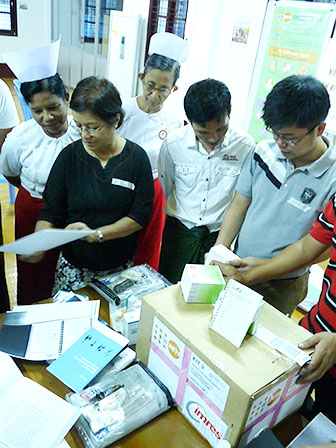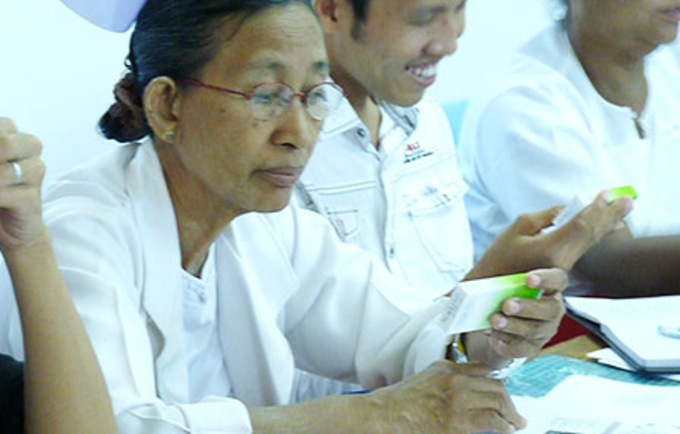A two-day orientation session took place in Sittwe, Rakhine State, from 29th to 30thOctober 2015 to build the capacity of humanitarian workers to implement the MISP and provide Emergency RH Kits to reduce mortality and morbidity associated with RH issues, particularly among women and girls, in crisis situations. The orientation session was facilitated by UNFPA and the International Planned Parenthood Federation under their Sexual and Reproductive Health Programme in Crisis and Post-Crisis Situation (SPRINT) initiative.
A total of 15 participants from UN agencies and NGOs attended the session, and for many it was the first time that they were introduced to the five main objectives of MISP as well as the three blocks of Emergency RH Kits. MISP is an internationally accepted minimum standard of care. Critical to the successful implementation of MISP is coordination with other sectors/clusters, such as protection and early recovery, not only health.

Daw Aye Thein, a midwife from the Myanmar Nurse and Midwife Association (MNMA) based in Sittwe said: “During this two day orientation session, I have learned about the MISP and emergency RH kits. Now, I can determine which kits should be distributed at the community level and which are intended for use at health facility and hospital levels.”
The Emergency RH Kits have been designed primarily to facilitate the provision of priority reproductive health services to displaced populations. The kits are divided into three blocks that are distributed at the community, primary health care and referral hospital levels. They contain essential drugs, supplies and equipment that can be used for a limited period of time for a specific number of people.
With the on-going conflict and the recent floods in Rakhine State, UNFPA has been working with partners to implement the MISP, and support authorities and NGOs through the provision of Emergency RH Kits. To date, a total of 49 Emergency RH Kits have been distributed in Rakhine State.

